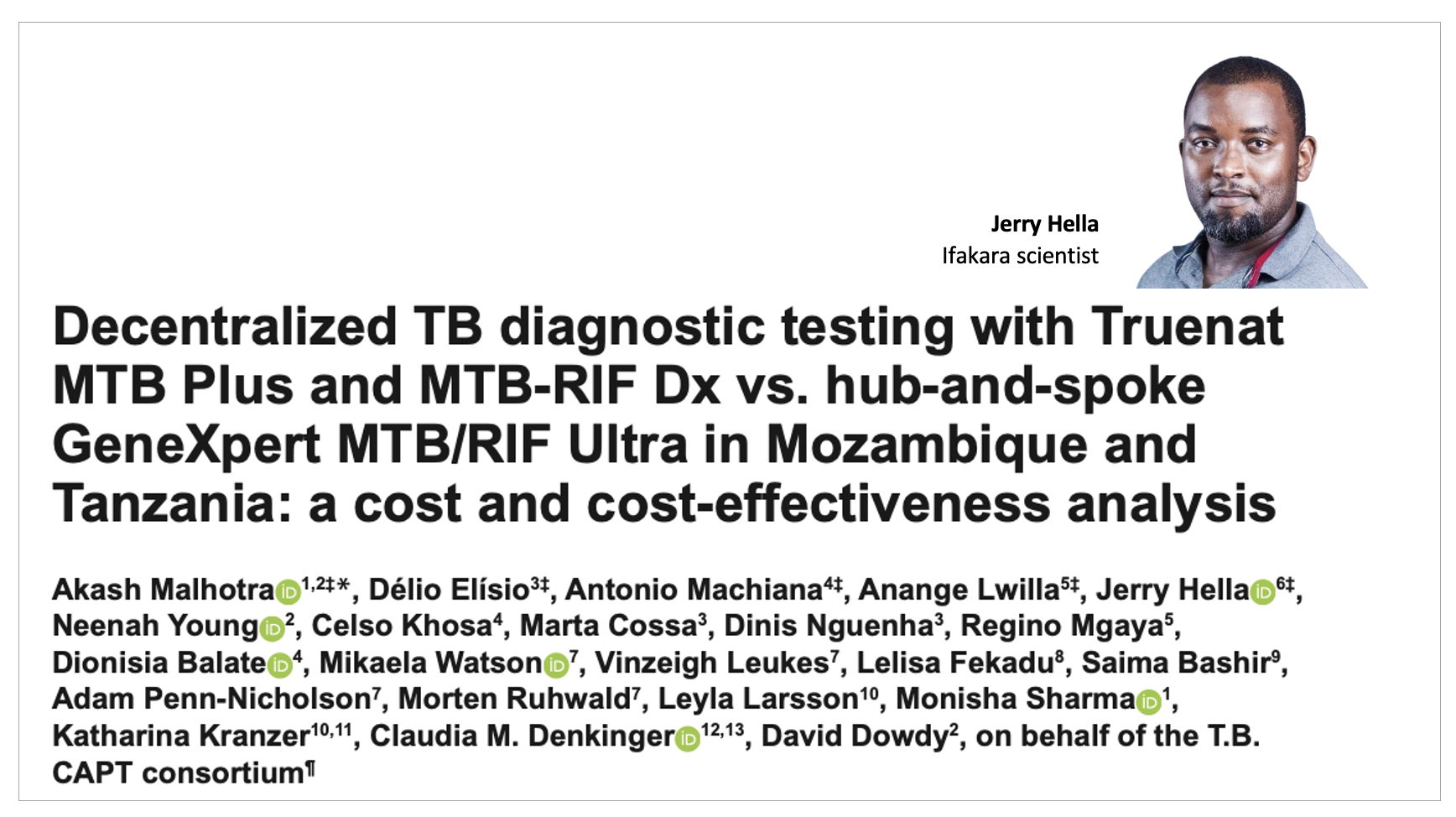
TB: Faster testing proven to save lives, new study finds

A new international study led in part by Jerry Hella from the Ifakara Health Institute has found that decentralizing tuberculosis (TB) testing can help more people start treatment sooner — without significantly raising costs.
The findings come from a large trial in Tanzania and Mozambique and suggest that point-of-care molecular testing, using the Truenat MTB assays, could be a game changer in communities where delays in diagnosis still cost lives.
Why it matters
Tuberculosis remains one of the world’s deadliest infectious diseases, claiming over 1.3 million lives each year. In many low- and middle-income countries, delays in diagnosis — often caused by the need to send samples to centralized laboratories — mean patients wait days or even weeks before starting treatment.
The study shows that bringing accurate TB testing machines closer to where patients live and seek care:
- Cuts the time to treatment — in the trial, 82% of patients diagnosed with TB through decentralized testing began treatment the same day, compared to just 3.3% under the traditional system.
- Keeps costs manageable — the price per patient starting treatment within seven days was similar or lower than the centralised “hub-and-spoke” approach.
- Improves access — especially in rural and remote areas, where traveling back and forth to collect results can be a barrier.
How this study was done
The research — published in PLOS Global Health on May 30, 2025 — compared two approaches:
- The standard “hub-and-spoke” model where samples are sent to central laboratories for GeneXpert testing.
- A decentralized model using portable Molbio Truenat MTB Plus and MTB-RIF Dx machines in peripheral clinics.
Data came from the TB-CAPT Core randomized controlled trial, which enrolled nearly 4,000 participants across Tanzania and Mozambique. Economic analyses measured costs from both the health system and patient perspectives.
A global collaborative effort
While Jerry Hella of Ifakara Health Institute was one of the co-first authors. He worked along with other first co-authors, namely: Akash Malhotra (University of Washington and Johns Hopkins University – USA); Délio Elísio (Centro de Investigação em Saúde de Manhiça – Mozambique); Antonio Machiana (Instituto Nacional de Saúde – Mozambique); Anange Lwilla (Mbeya Medical Research Center, National Institute for Medical Research – Tanzania); and Members of the T.B. CAPT consortium.
The study was a joint effort involving scientists from multiple leading research institutions, including: University of Washington and Johns Hopkins University, and Harvard T.H. Chan School of Public Health (USA); Centro de Investigação em Saúde de Manhiça and Instituto Nacional de Saúde (Mozambique); Mbeya Medical Research Center, National Institute for Medical Research (Tanzania); FIND (Switzerland); University of Manchester (UK); and Universities in Munich and Heidelberg (Germany)
This wide-reaching collaboration ensured the results are robust and relevant across different settings.
‘Centralized TB testing could be especially effective’
The researchers conclude that decentralized TB testing could be especially effective — and cost-effective — in areas with high TB prevalence and enough testing demand to keep the machines in frequent use. The technology could also be used to diagnose other diseases like HIV and hepatitis B, boosting its value for health systems.
“Faster diagnosis means faster treatment, and that’s crucial in the fight against TB,” they report. “Decentralized testing can save lives, but it needs careful planning to make the most of available resources.”
>> Link to the full research paper: PLOS Global Health – TB Testing Study
